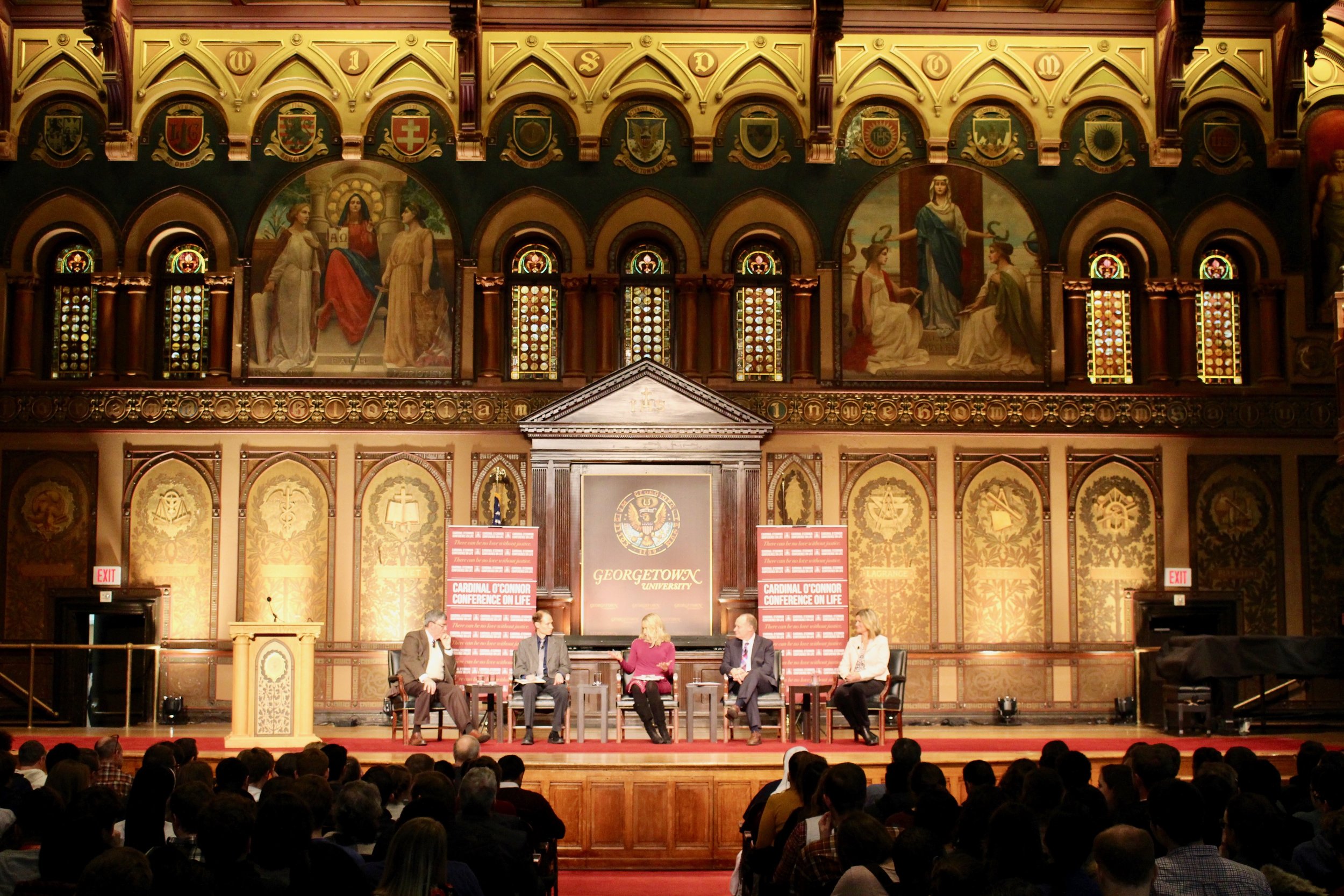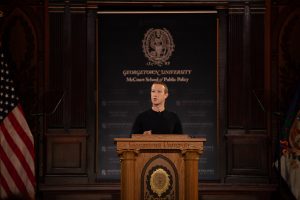Georgetown’s annual pro-life conference, the Cardinal O’Connor Conference on Life (OCC), faces criticism once again due to its name and choice of speakers. Student group H*yas for Choice (HFC) sent the university administration a petition with two main demands: renaming the conference due to the cardinal’s contentious past and publicly condemning the cardinal’s actions and the rhetoric of certain conference panelists. The 2021 OCC was held virtually on Jan 30.
At the time it was sent, 511 students, 75 alumni, 32 student organizations, and seven faculty and staff members had signed their names below the letter. The petition exfCCopressed concern over the attitudes and rhetoric of some panelists, both this year and in the years prior. HFC led the push using, its networks with other progressive clubs on campus to build momentum and raise awareness around issues of reproductive choice.
“In recent years we have tried to take more direct action to identify the most harmful aspects of the conference, and try to apply pressure for change in those areas,” Elianna Schiffrik (SFS’21), president of H*yas for Choice, wrote in an email to The Voice. “These hateful ideologies continue to permeate American society and endanger the lives and wellbeing of Georgetown students and the wider community.”
This year’s panelists include Reggie Littlejohn, Valerie Huber, Dr. Alveda King, Dr. Dede Byrne, Gloria Purvis, Catherine Hadro, and keynote speaker Aimee Murphy. The petition detailed anti-LGBTQ views, abstinence policies, and dangerous anti-abortion advice from three panelists in particular: King, Huber, and Byrne. HFC also condemned the anti-Black, Islamophobic, and transphobic rhetoric of the originally planned 2021 keynote speaker, Gianna Jessen.
“I believe it is possible to find anti-abortion speakers that are not sexist, racist, and anti-LGBTQ,” Lauryn Ping (COL’23), HFC member, wrote in an email to The Voice. “Yet for the past 21 years, [OCC] student organizers have consistently failed to do so.”
The remainder of the petition concerns elevating the Cardinal John J. O’Connor (PHD’70), whose checkered past runs counter to the school’s stated ideals, according to the petition.
The cardinal courted controversy with his comparisons of abortion to the Holocaust, conservative views on LGBTQ+ rights, reputation as an enforcer for Pope John Paul II, and campaigning against AIDS education programs in the city.
“The fact that [OCC] organizers have consistently chosen to glorify Cardinal O’Connor, an infamous homophobe, and provide a platform for problematic speakers to indoctrinate hundreds of attendees with their hateful ideologies illustrates the values of the conference as a whole,” Ping wrote.
Renaming the conference and condemning rhetoric of the cardinal and speakers are first steps, according to Ping. HFC also intends to raise awareness about the event’s funding and the GUPD presence when held on campus.
A statement from Georgetown’s Right to Life (RTL) student organization responded to the petition by emphasizing the scope of their discussions, which extend beyond issues of abortion and commending the credentials of their invited speakers as well as Cardinal O’Connor.
RTL points to the cardinal’s medical volunteering and championing of women in pro-life arguments. During his tenure as archbishop of New York, O’Connor gained a reputation as an advocate for organized labor, the indigent and homeless, and his pro-life views, from conception to natural death.
“The OCC has a place at Georgetown. We will continue to defend the sanctity of human life at all stages and build a culture of life at Georgetown,” Kerry Ashkenaze (SFS’21), president of RTL, wrote in an email to the Voice. Ashkenaze also mentioned the organization’s other initiatives beyond hosting the annual OCC, including public service, fundraising for local pregnancy care centers, and inviting other speakers.
“The OCC condemns any sort of racism, injustice and discrimination, and has always been fighting for the rights of marginalized groups,” she added. “Our advocacy of the consistent life ethic means that our defense of life extends beyond just the unborn.”
Students have also raised questions about the conference’s intended audience, as most attendees are not enrolled at Georgetown. The conference mainly also serves academics, alumni, high school students, and clergy. Only 20 percent of last year’s audience included Georgetown students, according to Ping, yet the university continues to fund and house the event each year.
Speakers invited to the conference fall under the university’s speech and expression policy, which places few restrictions on outside guests in an effort to promote discourse and open debate.
While the university has a responsibility to maintaining free speech, according to Schiffrik, “[Georgetown] doesn’t prioritize the mission of striking a balance of discussing pro-life ideas with keeping students safe and limiting speakers who go against the university’s stated values.”
Despite ongoing criticism of elements of the OCC, the university hosts the conference annually and maintains its defense of Catholic beliefs.
According to a university spokesperson, “Georgetown is firmly committed to the Catholic Church’s teachings and values, including those about the sanctity and dignity of life, and we strongly support a climate that continues to provide students with new and deeper contexts for engaging with our Catholic tradition and Jesuit identity.”
“This petition is part of a larger effort to draw the administration’s attention to why this conference is so harmful to our community, and just how many students are willing to stand up and say so,” Schiffrik wrote.






